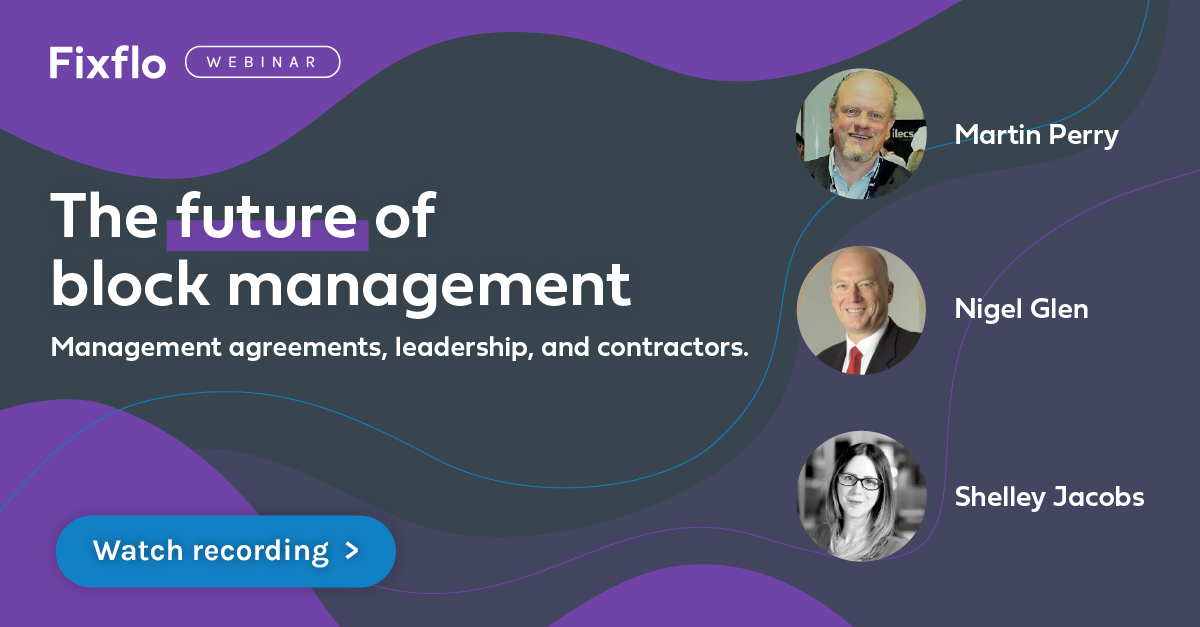Can updating your standard block management agreement simplify your work life?
As a property manager, you know that effective management agreements are crucial for maximising profitability. These agreements define the relationship between you and your clients and set clear expectations for both parties. However, many property managers view management agreements as a one-time job that's done and forgotten until something goes wrong. This approach can lead to misunderstandings, disputes, and lost revenue.
To avoid these issues, it's important to see management agreements as an ongoing tool for increasing profitability. By setting clear expectations for your clients and yourself, you can avoid misunderstandings and provide value-added services that increase revenue.
We spoke to Nigel Glen, Shelley Jacobs and Martin Perry about how to get the most out of your management agreements.
Where standard agreements fail
You probably already have a standard format for management agreements, which covers the basics for all your clients. A standard format that covers all the essential elements of the relationship can avoid the complexity and confusion that can arise when many clients are on many different contracts.
However, where standard agreements can fall short is when things go wrong. You might be asked to do something outside the standard contract. Over time, these one-time jobs can accumulate to the point where you are at the beck and call of clients helping with things far outside the scope of their contract without being fairly compensated.
Clear instructions for exceptional circumstances
Ideally, your management agreement should lay out clear guidelines for how to handle exceptional circumstances, such as when you’re asked to deal with an emergency on a Saturday night.
It can also include what kinds of work you’re willing to do. Some clients act like their property manager is their secretary, so it’s important to be firm about the boundaries of what the contract includes and what it does not. While this can be challenging with existing clients, it will avoid the relationship souring long-term.
Levels of service
One way that you might want to reflect the work you’re doing in your management agreements is to offer different levels of management agreements for different levels of service.
This could take one of many forms. One way would be to create Bronze, Silver and Gold Agreements that lay out not only what you’re able to do for your clients but set out a precedent for upgrading to a higher level if they want extra services. Alternatively, you could keep all management agreements standard but offer extra services separately as add-ons.
This could give you a better way to avoid being pulled into issues that aren’t covered by the agreement and could turn high-touch clients into low-touch clients as they understand better what you will do for them without them needing to ask.
Time management and fees
Another way to go is to evaluate how much time each client takes up and update their service agreement to reflect that. Keeping track of time spent can be challenging, but it's worth doing to identify which properties are taking up the most time and why so that you can adjust your agreement accordingly.
Consider setting up periodic fee reviews to ensure that your clients are receiving the best value for their money. If a client is taking up more of your time than their contract allows, then you could discuss expanding the remit of their management agreement. This way, you can prioritise clients who are getting the most out of your services while still offering good value to those who don’t require as much of your time.
Expectation management
Management agreements should set out the relationship between you and your clients. This means clearly defining the expectations on both sides, so there is no confusion. Being clear about what you are willing to do and not willing to do for your clients will help you build strong relationships with clients and ensure that they see you as a valuable partner in their property management needs.
Want to hear more from Nigel, Shelley and Martin? Watch the webinar for more industry insights here.
BLOG DISCLAIMER
This article is intended for information purposes only and does not constitute legal advice. If you have any questions related to issues in this article, we strongly advise contacting a legal professional.
These blog posts are the work of Fixflo and are licensed under a Creative Commons Attribution-ShareAlike 3.0 Unported License. In summary, you are welcome to re-publish any of these blog posts but are asked to attribute Fixflo with an appropriate link to www.fixflo.com. Access to this blog is allowed only subject to the acceptance of these terms.

